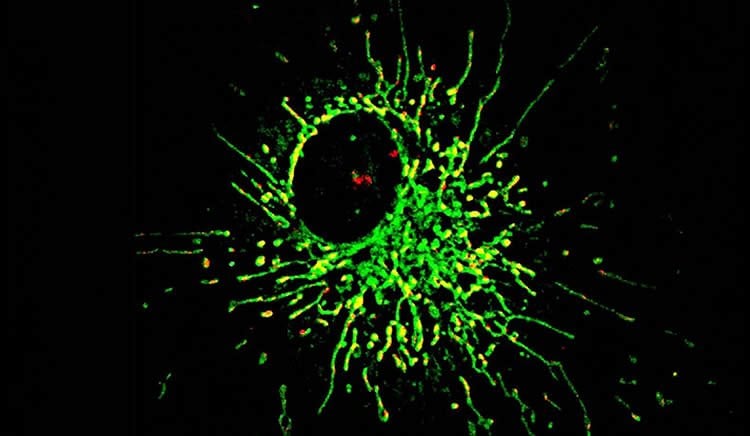Summary: Findings provide insight into key processes of inflammation and could also have implications for treating neurodegenerative diseases, researchers report.
Source: Yale.
In patients with colitis, a serious condition affecting the gut, the immune system turns against the body’s own microbes, causing inflammation. To combat this inflammation, scientists have focused in on a chemical signal known as IL-10. While it’s understood that IL-10 plays a critical role in controlling inflammation and preventing colitis, it’s not clear how.
In a new study published in Science, immunobiologist and senior author Ruslan Medzhitov led a research team that examined the inflammatory response in mice and people lacking the IL-10 signal. They found that IL-10 works by blocking the metabolism of immune cells that are part of the inflammatory response. They also noted that IL-10 clears damaged mitochondria — the power generators within cells. The accumulation of this cellular damage in turn promotes inflammation.
The finding deepens understanding of a key process in inflammation, and could lead to therapies that target this pathway in colitis, said the researchers, and it also has implications for preventing or treating degenerative diseases that result from cell damage and often occur with aging.

Source: Ziba Kashef – Yale
Image Source: NeuroscienceNews.com image is adapted from the Yale news release.
Original Research: Abstract for “Anti-inflammatory effect of IL-10 mediated by metabolic reprogramming of macrophages” by W. K. Eddie Ip, Namiko Hoshi, Dror S. Shouval, Scott Snapper, and Ruslan Medzhitov in Science. Published online May 5 2017 doi:10.1126/science.aal3535
[cbtabs][cbtab title=”MLA”]Yale “Key Pathway in Inflammation and Aging Identified.” NeuroscienceNews. NeuroscienceNews, 9 May 2017.
<https://neurosciencenews.com/inflammation-aging-pathway-6626/>.[/cbtab][cbtab title=”APA”]Yale (2017, May 9). Key Pathway in Inflammation and Aging Identified. NeuroscienceNew. Retrieved May 9, 2017 from https://neurosciencenews.com/inflammation-aging-pathway-6626/[/cbtab][cbtab title=”Chicago”]Yale “Key Pathway in Inflammation and Aging Identified.” https://neurosciencenews.com/inflammation-aging-pathway-6626/ (accessed May 9, 2017).[/cbtab][/cbtabs]
Abstract
Anti-inflammatory effect of IL-10 mediated by metabolic reprogramming of macrophages
Interleukin 10 (IL-10) is an anti-inflammatory cytokine that plays a critical role in the control of immune responses. However, its mechanisms of action remain poorly understood. Here, we show that IL-10 opposes the switch to the metabolic program induced by inflammatory stimuli in macrophages. Specifically, we show that IL-10 inhibits lipopolysaccharide-induced glucose uptake and glycolysis and promotes oxidative phosphorylation. Furthermore, IL-10 suppresses mammalian target of rapamycin (mTOR) activity through the induction of an mTOR inhibitor, DDIT4. Consequently, IL-10 promotes mitophagy that eliminates dysfunctional mitochondria characterized by low membrane potential and a high level of reactive oxygen species. In the absence of IL-10 signaling, macrophages accumulate damaged mitochondria in a mouse model of colitis and inflammatory bowel disease patients, and this results in dysregulated activation of the NLRP3 inflammasome and production of IL-1β.
“Anti-inflammatory effect of IL-10 mediated by metabolic reprogramming of macrophages” by W. K. Eddie Ip, Namiko Hoshi, Dror S. Shouval, Scott Snapper, and Ruslan Medzhitov in Science. Published online May 5 2017 doi:10.1126/science.aal3535






